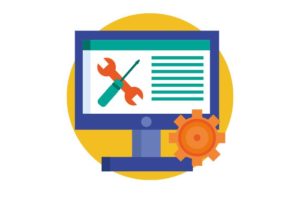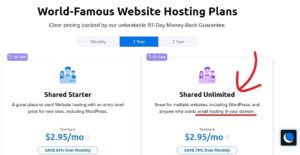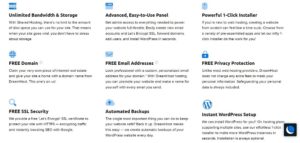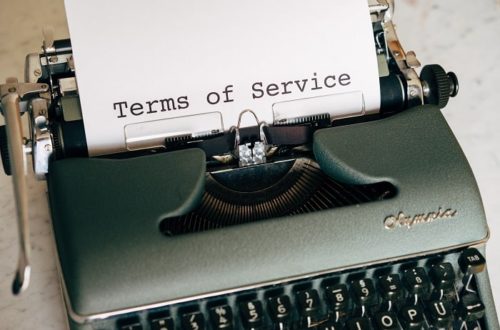
How to Start a Blog with No Experience (No Coding Skills Needed!)
You can start a blog with no experience, no technical knowledge, and little money, and yet make good money from it.
If you’re committed, you can turn your blog into a full-time job that makes $3,000+ a month after around 2 years of constant blogging.
So, if you are willing to change your life by starting a blog even if you have no experience, and are already aware of the 5 things you must know before starting a blog, it’s time to start!
Throughout this beginner-friendly guide for those who are not techy at all, you’ll also find loads of trusted resources that will make your life as a blogger a lot easier.
This page contains affiliate links. If you purchase through our links, we get a commission at no cost to you. Read the full disclosure here.
Table of contents
- Is Starting A Blog Worth It?
- How Quickly Can You Monetize A Blog?
- What Makes A Good Blog?
- How To Start A Blog With No Experience In 5 Steps
- Where Should A Beginner Blog Start?
- Can You Make 10k A Month Blogging?
- How Do I Blog With No Money?
- Can You Start A Blog If You Can’t Write?
- How Do I Blog If I Hate Writing?
Is Starting a Blog Worth It?
It’s absolutely worth starting a blog, even if you feel like you’re a little late to the party. While some blogging niches are saturated, many underexplored niches with good profit opportunities still exist.
Also, starting a blogging business is really inexpensive.
You can start a blog and work on it in your spare time while still working on your 9-5 job. With commitment and planning, you can grow a blog by working on it for just a few hours a week.
How Quickly Can You Monetize a Blog?
The average time to monetize a blog is usually 2-3 years. However, this period can be shorter or longer depending on your posting frequency, content quality, and SEO and monetization strategy.
There are several ways to monetize a blog. Among the most popular are displaying ads and working with affiliate marketing. Generally, monetizing with ads takes longer than with affiliate sales.
What Makes a Good Blog?
What makes a good blog is content that genuinely helps the audience, good user experience, a profitable and evergreen niche, and diverse monetization.
If your blog meets all of these requirements, you are on your way to having a successful blog.
How to Start a Blog With No Experience in 5 Steps

If you’re not a techy person, and yet you don’t want to miss the opportunity to make money blogging, these 5 steps on how to start a blog without coding skills are the way to go!
#1 Start a Blog With No Experience Using an Easy-to-Use CMS (Content Management System)
CMS (Content Management System) is a set of functions used to make life easier for website creators.
One of the best-known, easier-to-use, and most-used frameworks (the basic structures) around the world is WordPress. WordPress is written in PHP (Hypertext Preprocessor) programming language, which allows any user with basic knowledge of computing to create complete and very easy-to-maintain websites with interactive content.
Before CMS, only people with advanced knowledge of web programming were able to set up websites. But now anyone can start a blog with no technical experience!
When choosing the best CMS to start a blog with no experience, you should definitely choose WordPress. But bear in mind that WordPress.COM and WordPress.ORG are not the same platforms. To have an independent and fully customizable blog you must choose WordPress.ORG.
WordPress.ORG is the most complete, customizable, and easy-to-use CMS to carry out your blog’s maintenance.
WordPress has an infinite variety of plugins and customization themes, allowing you to make any kind of changes and customizations to your blog professionally. With no technical knowledge at all!
To create a WordPress blog you’ll need a web hosting service, which we’ll talk about in the next topics.
One very good thing you need to know is that you won’t have to worry about installing your WordPress blog.
How so? The thing is, a good hosting service will do all the automatic pre-install for you in a few minutes!
#2 How to Choose a Domain Name (& What It Is)
Your Domain Name is your unique Internet address. To make it easy to understand, let’s say:
- The CMS is the belongings you have in your home;
- The Hosting Provider (we’re almost getting there) is your home;
- And finally, the Domain Name is your home address.
And if you want to get a lot of visitors (your future blog readers) in your house (your blog), you need people to know your address (your domain name).
Getting a domain name is quite easy even if you’re starting a blog with no experience. But you better purchase your domain name with the same service you’ll host your WordPress blog, so you won’t need to transfer it.
But before we get there, take a look at these important things you need to know BEFORE choosing your domain name:
-
Identifying what your blog is going to be about is crucial when choosing a domain name
Let’s say your name is Claire, and you’re a graphic designer who will focus on supply reviews for other designers on your blog. You could choose something as straightforward and with your personal touch as designbyclaire[dot]com. Sounds obvious, I know, but obvious tends to be pretty good for SEO.
On the other hand, in addition to being a graphic designer, you can also be someone with a lot of experience with dating apps (it might happen 🤷♀️). After all, we all have many layers. Then you find out that plenty of people are interested in your advice and that affiliate marketing in the dating niche is extremely profitable (which is true, in fact). So you add a category called “dating” to your website.
That’s a great way to make money blogging.
But what if you suddenly realize that you’ve become a dating coach and it’s this niche that’s making you a lot of money every month? Then your current domain designbyclaire[dot]com becomes out of place.
It’s okay to start not knowing everything and learn along the way. But you need at least a draft plan, so you can protect yourself.
If you intend to choose a very broad niche so that you can test which categories work best for you in that niche, and let to narrow down your content over time, then choose a broader, perhaps ambiguous, domain.
Using your name might be the right choice.
-
You can change it later, but it comes with a few obstacles
If in the future, after your blog is stable, you want to acquire a new domain name, you can redirect all your existing URLs to the new domain. In fact, you MUST redirect them!
If you don’t, all links to your website that already exist on social media, other blogs, and even Google searches will become broken. That means that people interested in your content will not be able to find your blog.
Broken links send alarming signals to Google that your blog is untrustworthy, which is harmful to your SEO score (which means less traffic to your blog).
Redirecting all your existing URLs isn’t particularly difficult, even for those who start a blog with no experience. You can do this in your WordPress Dashboard via a plugin, but it can be bothersome and tiring.
In addition, you will need to communicate to your readers a few weeks or months in advance that the change will happen. So that they understand that your brand is adopting a new identity.
This is not at all uncommon, many brands have done that now and then.
I get that, as you’re just starting a blog with no experience, you’re probably already overwhelmed by all the many tasks you have on hold to complete. And certainly are not interested in more tasks that you may never need to do. However, it is useful for you to know that this possibility exists. So that you’re not too hard on yourself when choosing your domain name.
Just keep in mind when choosing the best domain name that it should, ideally, be a long-term commitment. However, it’s also adaptable if you need to make changes in the future, such as rebranding your blog. It’s not that big of a deal.
-
Check the competition
Checking the competition is essential regardless of whether you’re starting a blog with no experience or have been a trained blogger for years.
Your domain is your brand. If there are other blogs (possibly big guys) with similar names, you are likely to be shadowed by them.
An easy way to check the competition is to Google all the names you’d like to get without the .com to see if there are any other websites with similar names.
Also check on social media, manually searching the possible names in the search bars.
-
Preferably, try to get a .com domain name
Google tends to favor websites whose domains are yourwebsite.com over .net, .org, and so on.
Audiences also tend to rely more on websites that are .com.
However, note that if you intend to have a local blog, then domains that are .co.uk or .au, for example, can serve your purposes very well. But if your blog is in English, giving up all the English-speaking readers around the world, mostly the US-based, could be throwing money away.
-
You should get your domain name, professional email, and hosting through the same provider to avoid annoying technical set-ups you don’t want to do
When you get a domain address, a professional email @ your domain, and a hoster provided by different servers, you’ll have to manually configure something called DNS (Domain Name System) to make them all work in harmony. (Spoiler: You need them to work in harmony, or nothing works at all).
I, unfortunately, had to do that once and it was an endless headache. It’s very easy to add some wrong information in this manual configuration, which can put you in all sorts of unwanted situations for your business. From your professional email inbox to stop receiving emails, to your website being unavailable to anyone who wants to access it.
The good news is that it’s not difficult to get all these services from the same provider. Also, in many cases, your hosting server may provide you with a free domain name in your first year of hosting!
-
You should seriously consider purchasing a Domain Privacy
Every time you register a domain, The Internet Corporation for Assigned Names and Numbers (ICANN) requires some of your personal information such as your:
- Full name
- Home or business address
- Phone number.
After the registration, all this private personal information becomes publicly accessible to anyone running a WHOIS lookup.
WHOIS is a query and response protocol that is widely used for querying databases that store the registered users or assignees of an Internet resource, such as a domain name, an IP address block or an autonomous system, but is also used for a wider range of other information.
— Wikipedia
It’s unbelievable how little focus is placed on the importance of getting domain privacy in most tutorials on starting a blog!
When you obtain domain privacy, your personal information provided at the time of registration becomes inaccessible.
Most domain name providers charge between $12 and $30 a year for domain privacy.
However, it is possible to find reliable web hosting services that provide free domain privacy, such as DreamHost.
#3 What is Web Hosting & How to Choose The Right One For You to Start a Blog Without Technical Experience
Finally, after having learned that WordPress.org is the best CMS for you to have a fully independent blog (which will give you A LOT more opportunities to make money blogging) and decided what your blog’s domain name will be, now is the time to bring your blog to life!
Choosing a good web hosting service to host your WordPress website is one of the most important steps you will take to start a blog with no experience. That’s because the web hosting service will do most of the technical part for you. And if you get your domain name and your email @ your domain name together with WordPress hosting, you’ll have to worry even less about techy stuff.
What is a web hosting service?
An Internet hosting service is a service that runs servers connected to the Internet, allowing organizations and individuals to serve content or host services connected to the Internet.
A common kind of hosting is web hosting. Most hosting providers offer a combination of services — email hosting, website hosting, and database hosting, for example.
— Wikipedia
WordPress.org is a free platform, but it needs a hosting provider to be installed.
When choosing a hosting service, there are some crucial characteristics that you should take into account, such as:
- Speed performance
- Whether there is 24/7 customer support
- How much traffic the hosting plan is capable of handling
- In which countries the hosting service is faster
- Among others.
One hosting service often recommended to beginners is Bluehost, which is a reliable service that provides affordable annual subscriptions.
The issue with Bluehost, however, is that some must-have tools, such as professional email and domain privacy, are not included in the cheaper plans, which ends up making Bluehost a bit more expensive. Especially for those on a tight budget or who simply don’t want to spend a lot before seeing their blogs making any money.
That’s why I recommend DreamHost’s Shared Unlimited Plan, which is the hosting service where I’ve started all my blogs.
Choose the Shared UNLIMITED plan, not the Starter plan because, although they cost the very same price in your first year, the Starter plan lacks several must-have features, and you’ll have to spend more money to get them separately. The Shared Unlimited, however, comes with all additional must-have features FOR FREE.

For only $35.40, which is very affordable and below average, DreamHost’s Shared Unlimited plan includes a free domain name (available only for yearly plans), includes professional email @ your domain, and supports unlimited websites and unlimited traffic. That’s the most affordable and complete hosting service plan for those starting a blog with no experience.

Also, WordPress itself officially recommends DreamHost!
And don’t worry about installing WordPress. DreamHost comes with WordPress pre-installed, so you can easily start a blog without experience!
#4 WP Security Measures to Keep Your Blog & Privacy Safe (& How You Can Do This Even If You Want to Start a Blog Without Technical Experience)
WordPress is the most popular CMS, powering around 64 million websites currently. Precisely for this reason, WordPress websites are often the target of hacking attempts.
Also, technical problems sometimes happen with the installation of plugins and constant updates.
You also need to take into account your personal privacy as the blog owner. So that your personal information does not fall into the hands of malicious people.
But don’t worry! Even if you are starting a blog without knowing how to code, you can secure your website using handy and reliable tools that will skip the need for technical skills!
It is possible to implement some security procedures that will make the hackers’ mission to screw up with your blog practically impossible. You’ll be also able to prevent your information from falling into the wrong hands. For that, you’ll need a day or two (or perhaps a whole week, depending on your familiarity and time availability).
And if you have very limited time to work on your blog, don’t blame yourself if it takes you a little longer than a week to take all these steps. Remember this is to keep you and your blog active and safe in the long haul.
You’re better safe than sorry, by the way.
-
Be SSL Secure
SSL stands for Secure Sockets Layer. The SSL keeps the internet connection secure and safeguarded. SSL also prevents criminals from reading or modifying any information transferred (including potential personal details) and any sensitive data sent between two systems.
So that there is no leakage of any sensitive information that is transferred between the web server and the web browser, an SSL certificate must be installed. It’s the standard technology that informs Google that your website is reliable. Without an SSL, Google will inform anyone who visits your site that the connection is not secure.
Ideally, your hosting service should install or pre-install an SSL certificate on your website. Any hosting service that does not do this is probably not reliable.
DreamHost installs the SSL certificate on your website for free. That’s one more reason why I said earlier that with a good web hosting service, it’s easier to start a blog with no experience.
You can check this article here for more instructions.
-
Install a reliable WordPress Security Plugin
Installing a security plugin should be the first thing you do on your website!
A security plugin will stop hacking and malware injection attempts, and will periodically scan your website. The plugin will also inform you every time a user logs into your website. Not to mention sending you periodic emails letting you know how secure your website is or if anything suspicious has happened.
The Best WordPress Security Plugin For New Bloggers With No Experience:
Solid Security / SolidWP: With 1+ Million active installations, Solid Security /SolidWP (formerly iThemes Security) blocks bots and assures you that if a hacker breaks into your site, they will identify the attack immediately and take the necessary measures to limit the damage they can do. Solid Security / SolidWP also allows you to implement advanced security measures to your site within minutes, completely dispensing you from coding!
-
Install a reliable backup plugin
I’ve had my (un)fair share of scares with my blogs. Fortunately, I did have backups of my content. But if I didn’t, I would’ve lost absolutely everything.
Hacking, server crashes, dodgy updates, or simple user errors can ruin your WordPress site.
The most complete backup service we always recommend is Solid Backups / SolidWP. Solid Backups (formerly BackupBuddy) is a 4-in-1 plugin, bringing together all the crucial elements that a backup plugin must have to be reliable, and has been protecting over 1 million WordPress sites since 2010. If something goes tragically wrong, with Solid Backups you can restore backups directly from your WordPress dashboard, so you don’t lose all your hard work!
By the way, the importance of backups is one more reason why I recommend new bloggers to host their blogs with DreamHost because even the most basic DreamHost plan has Daily Backups. Unfortunately, such a function is often charged separately or just included in the most expensive packages in other hosting services.
-
You DO need a VPN
As a blogger, you’re likely to get into the habit of commenting on blog posts by your fellow bloggers. It’s totally fine. But did you know that when you comment on a blog post, the article’s author and the blog’s Administrator receive an email that contains your IP address? Through your IP address, it is possible to discover sensitive information about you, including your country and city. Your IP address is also at risk when you connect to public Wi-Fi networks or when a hacker takes over your internet session (it’s called session hijacking).
The only way to protect your privacy online (and your approximate location!) is through the use of a VPN such as NordVPN. NordVPN will secure your online traffic through encryption, making it hard to spy on your private activities online or hijack data. In other words, to keep your privacy safe as a blogger, whether you blog anonymously or not, try using NordVPN which, by the way, allows you to connect up to 6 devices at once!
-
False-positive alarms sometimes happen and it sucks, but try not to despair yourself
Everyone makes mistakes sometimes, including technology. If you’re just starting a blog with no experience, you may get scarier than necessary.
Sometimes, some security service, whether provided by your web hosting or a plugin, scans your website and finds something that could, perhaps, mean that your site is compromised or has had its core files changed. More often than not, these alarms are false positives and may refer to some change that you requested through a plugin. Or it even might be the WordPress operating system that took a little longer to perform a task.
So when and if you receive such notifications, either on your WP Dashboard or by email, suggesting that your site may be compromised, try not to despair! If you have been doing everything right and taking all the security procedures, your chances of getting hacked are low. So chances are high that the warning is a false positive. If you are not techy at all and are completely lost, send an email with all your detailed questions to whatever service sent you the notification or to your web hosting provider. They will certainly manage to help you.
I almost didn’t include this section here, but in the end, I thought it was important for you, especially as a beginner. I mean, anything can be hopeless for WP beginners (I should know, as I’ve been there before. 😉)
#5 WordPress Plugins (Overview For Those Starting a Blog With No Experience, Installation Instructions & The Must-Have Plugins)
What is a plugin: A Plugin is nothing more than an additional software (sometimes called ‘add-on’) that informs the platform (WordPress, in this case) of several actions and changes that must be carried out on the system. Thus improving the capabilities of your platform.
Basically, without plugins, your WordPress website is just an empty house. No heater, shower, bed, fridge, stove — nothing you need in your daily life.
With plugins, it’s easy to make your site have the exact functions, look, and feel you want. Even if you’re a beginner starting a website without any coding skills.
Note: Having too many plugins can slow your blog down, which is bad for your users’ experience. Therefore, it’s harmful to your SEO score. So choose wisely which plugins are essential to keeping your blog safe, functional, and aesthetically pleasing.
How to install & activate a plugin when you’re starting a blog without experience:
- Log into your WordPress Dashboard as an Administrator.
- Browse the Left Menu and select Plugins > Add New.
- Type in the search box which plugin/type of plugin you’re looking for (specific name or function). If you purchased any Premium Plugin through the provider’s website, upload the zip file by clicking Upload Plugin.
- Press Install now on your desired plugin. Wait for the installation and then press Activate.
- That’s it.
Must-have WordPress Plugins:
#1 — Solid Security / SolidWP: The most complete and affordable WordPress security service, Solid Security / SolidWP (formerly iThemes Security) shields your website from brute force attacks and malware injection. Also, they assure that if a hacker manages to break into your website, they will immediately take the necessary actions to limit the harm the hacker can cause.
#2 — Solid Backups / SolidWP: Here’s something about websites: accidents happen. And they are not rare. Sometimes said accidents are caused by system errors. Other times you, especially as an inexperienced blogger, end up crashing your site. Besides, hackers and bots are out there, applying new strategies to destroy others’ hard work every single day. The best way to ensure that, whatever happens to your site, you can always restore it to exactly how it was before is by using a secure backup service. I recommend Solid Backups (formerly BackupBuddy) because it performs FULL backups of your WP site (including your databases and ALL your WP files). It also has fast and easy website restoration from a backup.
#3 — Hide My WP: Hide My WP is an anti-spam protection plugin. This plugin will hide your WordPress website from spammers, attackers, and theme detectors.
#4 — All in One SEO (AIOSEO): Do you have no idea how to make your website SEO-optimized? Well, don’t worry about it! All in One SEO is a WordPress plugin that comes with a powerful toolkit to guide you step by step on how to make your blog/site SEO-friendly and make the most of the keywords you are targeting.
Also if you intend to drive traffic to your blog through Pinterest, with AIOSEO you can easily verify your website on your Pinterest account. Even if you’re a beginner blogger without coding skills!
#5 — MonsterInsights: I use MonsterInsights to track my blog traffic: where does the traffic come from, how many pageviews and sessions my blog has, how much time users spend inside my blog, and which pages have the highest bounce rate.
Knowing the behavior of your readers on your site is essential to know which content they like the most and which pages convert the most.
Without MonsterInsights, you’ll need to hire a developer or know how to code to properly set up Google Analytics.
But my favorite thing about MonsterInsights is the Affiliate Link Tracking feature for WordPress.
With this function, through a single dashboard, you can track all your affiliate links, check individual performance, and control which programs are most profitable for you.
Where Should a Beginner Blog Start?
If you intend to monetize your blog, opt for a self-hosted blog. Free blogging platforms like Blogger or WordPress.com are far from ideal for those who want to blog professionally.
As a beginner blogger, WordPress.org is the best Content Management System option for you. WordPress.org is free, but you must pay for a web hosting service.
For $35.40/year, you get a year of WordPress hosting + a free domain name with DreamHost. Click here to check it out!
Can You Make 10k a Month Blogging?
Yes, making 10k a month is a goal for many bloggers, which many achieve.
To make 10k per month blogging, you need to be in a profitable niche, create quality and competitive content, and have a diverse monetization plan.
How Do I Blog With No Money?
Have you ever heard that to make money you have to spend money? Well, blogging is no different.
Fortunately, it is possible to start a professional blog for less than $70 a year. You will only spend on the absolute essentials and use free tools in the beginning until you are making money so you can invest more in your blog.
Can You Start a Blog If You Can’t Write?
“How do you write a blog without writing?”, you ask. Well, since a blog is periodic online content in text format, you need to publish written content on your blog. Otherwise, it’s not a blog.
That is, if you want to have a blog but you are not a good writer, you have only two options:
- Hire freelance writers to create content for your blog (which will obviously cost you good money)
- Or learn to communicate through writing even if writing isn’t your thing.
Remember that the best bloggers are the best communicators — not the best writers.
On This Topic: How to Blog As a Non-Writer and Make Good Money (5 Tips)
How Do I Blog If I Hate Writing?
If you hate writing, blogging is probably not the best career or hobby for you. Unless you have the budget to hire freelance writers. In this case, you can still run a blog simply as a business owner instead of a content creator.
If you can’t afford to hire freelance writers, but still want a way to make money online, you either deal with writing or try other options like becoming a YouTuber or Digital Influencer.
How to Start a Blog with No Experience — Conclusion
To start a blog with no experience, you’ll only need internet access and a budget as small as $100 (or $200 if you have a budget available to invest in some paid add-ons that will make your blog safer, faster, and SEO-optimized). This way, you can start a blog and make it not just a source of extra income or a side job, but a full-time job that makes more than $5000 a month.
But don’t get me wrong. Blogging is no lottery! Making money blogging is not about luck or easy money. Let alone some crazy magic recipe to make people rich.
The thing is, although you can start a blog with no experience today, to make it a profitable blog you’ll have to commit to your blog and strive to make your blog successful — like everything worthwhile in life.
Now that you have your blog all setup and secure, it’s time to customize the structure and appearance of your website, make your site SEO-optimized, and learn how to write articles that Google and your audience will love.
Here are the guides you need to make your brand-new blog profitable and successful:
- How to Optimize Your Website Structure for SEO (Improve Your Rankings in 7 Steps!)
- Blogging Without Social Media: 23 Steps to Grow A Blog Successfully
- Can Beginners Make Money with Affiliate Marketing?
- Write Blog Posts That ACTUALLY Convert in 7 Easy Steps
- Legal Guide For Bloggers: Make Sure Your Blog Is Legal
Sharing is caring! Share on Pinterest!
If this article was helpful to you, would you consider sharing it on Pinterest? This helps others who may also benefit from this information, as well as helping us to spread the word about this quality content that we always strive to create for you. Thank you!
Originally posted on December 17, 2021. Last updated on February 15, 2024.






